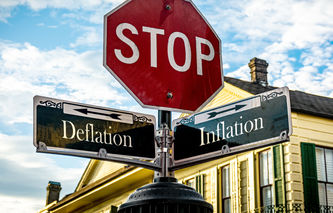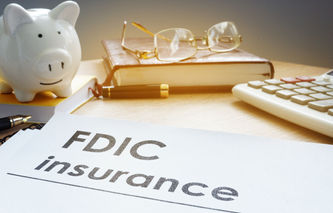Generally, there are three basic types of investments: stocks, bonds, and cash. Some investors treat cash as something that's only needed for unexpected expenses. But it can, and should, play an important role in nearly everyone's mix of portfolio assets.
Cash Assets
There is no doubt that having cash around as "spending money" is a necessity. It's needed to pay monthly bills, and it's always a good idea to have some extra money available in case an unexpected expense arises. These are two pretty compelling reasons to have, and hold, cash.
Asset Allocation
There are other reasons to hold onto cash, even beyond those "rainy day" expenses. In fact, the asset allocation theory states there are several factors that drive this need, for example:
Years Until Retirement: this factor should really be written as: years until the money is needed. The point here is the closer someone is to needing money, the more liquid the investment.
Risk Tolerance: if someone panics when their investments are performing poorly, they're a good candidate for investing in cash.
Knowledge and Comfort with Alternative Investments: unfortunately many investors have limited knowledge of their true choices. They don't know how to invest their money elsewhere, so they hold cash. In this example, probably in-excess.
Asset Allocation Calculator
It's possible to see how these factors influence the amount of cash held in portfolios by running through some planning scenarios using an asset allocation calculator. The end user's response to six simple questions allows the calculator to figure out a risk tolerance score, and provide a recommended mix of assets including stocks, bonds, and cash.
Advantages
The primary advantage of cash is the preservation of capital. That's a fancy way of saying it's a very safe investment. Money placed in money market funds or certificates of deposit are usually covered by the Federal Deposit Insurance Corporation, or FDIC. This means the deposit is insured against loss.
Another advantage of owning liquid assets is it prevents the owner from selling assets such as stocks or bonds when an unexpected expense comes up. The last thing an investor wants to do is sell a portion of their stock portfolio during a bear market to pay for their daughter's wedding. Holding cash is a simple way to meet these types of financial obligations.
These investments are also extremely liquid assets. That means they can be quickly exchanged for products or services. In most cases, all the accountholder needs to do is make a simple withdrawal to have immediate access to their money.
Disadvantages
On the other hand, the primary disadvantage of cash has to do with the overall return on investment. The higher rewards in life usually go to investors that are willing to take greater risks. That means relatively safe investments, will provide relatively low returns.
This is one of the reasons many investors spend so much time trying to figure out how much cash they need on hand. Investing is like putting money to work, and if too much money is sitting around idle, the portfolio's overall return suffers.
Investing Cash
At this point it should be clear that cash can, and should, play an important role in a diverse investment portfolio. Generally, there are four choices when it comes to investment options:
Certificates of Deposit
Money Market Mutual Funds
Money Market Accounts
High Yield Checking Accounts
Certificates of Deposit
A certificate of deposit, or CD, is nothing more than a deposit account with a thrift institution or bank, which typically offers a higher rate of interest than a savings account. CDs normally carry Federal Deposit Insurance Coverage up to $250,000.
Purchasing a CD
With a CD, a fixed amount of money is placed into an account for a fixed period of time. The more common terms for a CD include three months, six months, one year, three or five years. Interest is paid on predetermined intervals, usually monthly. Accounts that are redeemed early are usually subject to an early withdrawal penalty.
Before opening a CD, it's important to understand the terms and conditions associated with the deposit, including:
Maturity Date: understand when the CD matures, most banks will provide this information in writing.
Early Withdrawal Penalties: determine what early withdrawal penalties exist. Penalties are usually stated in terms such as the forfeiting of interest payments.
Callable CDs: a callable CD gives the bank the right to call in the CD after a set period of time. If interest rates suddenly fall, then the bank can call in the CD, which means the accountholder needs to move the money elsewhere at a potentially undesirable time.
Brokered CDs: individuals planning to place a lot of money in CDs need to understand if the deposit is being brokered. FDIC insurance is on a per institution basis, with a limit of $250,000. It's important to make sure all of the accounts are not with the same financial institution.
Money Market Mutual Funds
Money market mutual funds invest in short-term debt instruments such as certificates of deposits, government securities, commercial paper of companies, and other low-risk, highly-liquid securities. Unlike other mutual funds, they attempt to keep their net asset value (NAV) at a constant $1.00 per share.
Our article on Money Market Mutual Funds contains additional information about this low-risk investment, along with a list of some of the top funds in terms of yield.
High Yield Checking and Money Market Accounts
The exact rules may vary slightly with respect to high yield checking accounts and money market accounts; oftentimes these two investments are nearly identical. Accounts are typically offered through local banks, and allow the accountholder to write checks.
In exchange for offering better rates than savings accounts, high yield checking and money market accounts normally have fairly high minimum balance requirements. There may also be restrictions with respect to the number of transactions allowed each month, such as the number of checks written. Penalties can apply if those thresholds are exceeded. Banks limit the number of transactions, so they can invest the money in longer-term, higher yield securities.
The important point to remember is simply this: before investing cash in any of the above-mentioned accounts, it's important to understand the terms and conditions that apply; especially when it comes to gaining access to that money if an unexpected expense arises.




